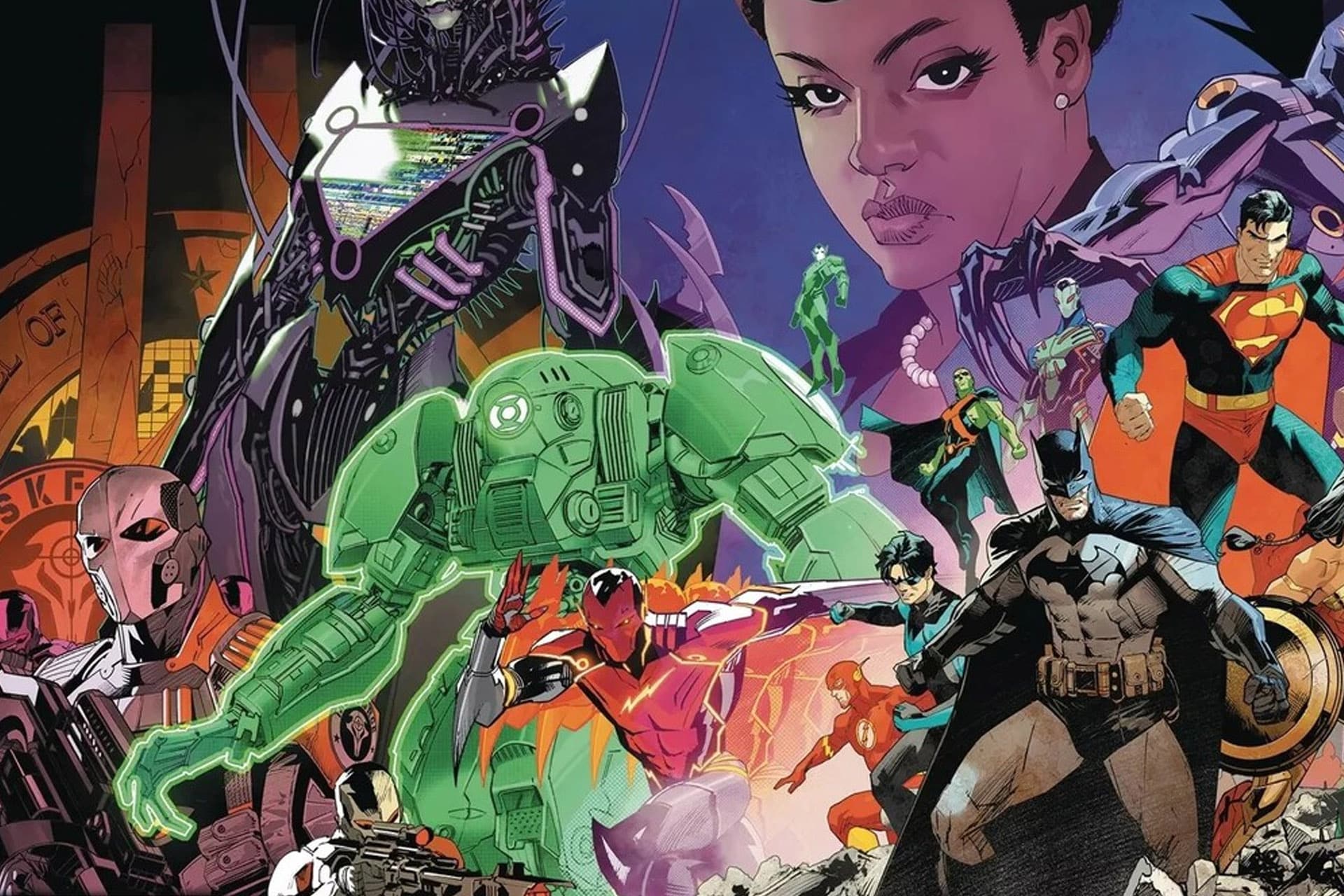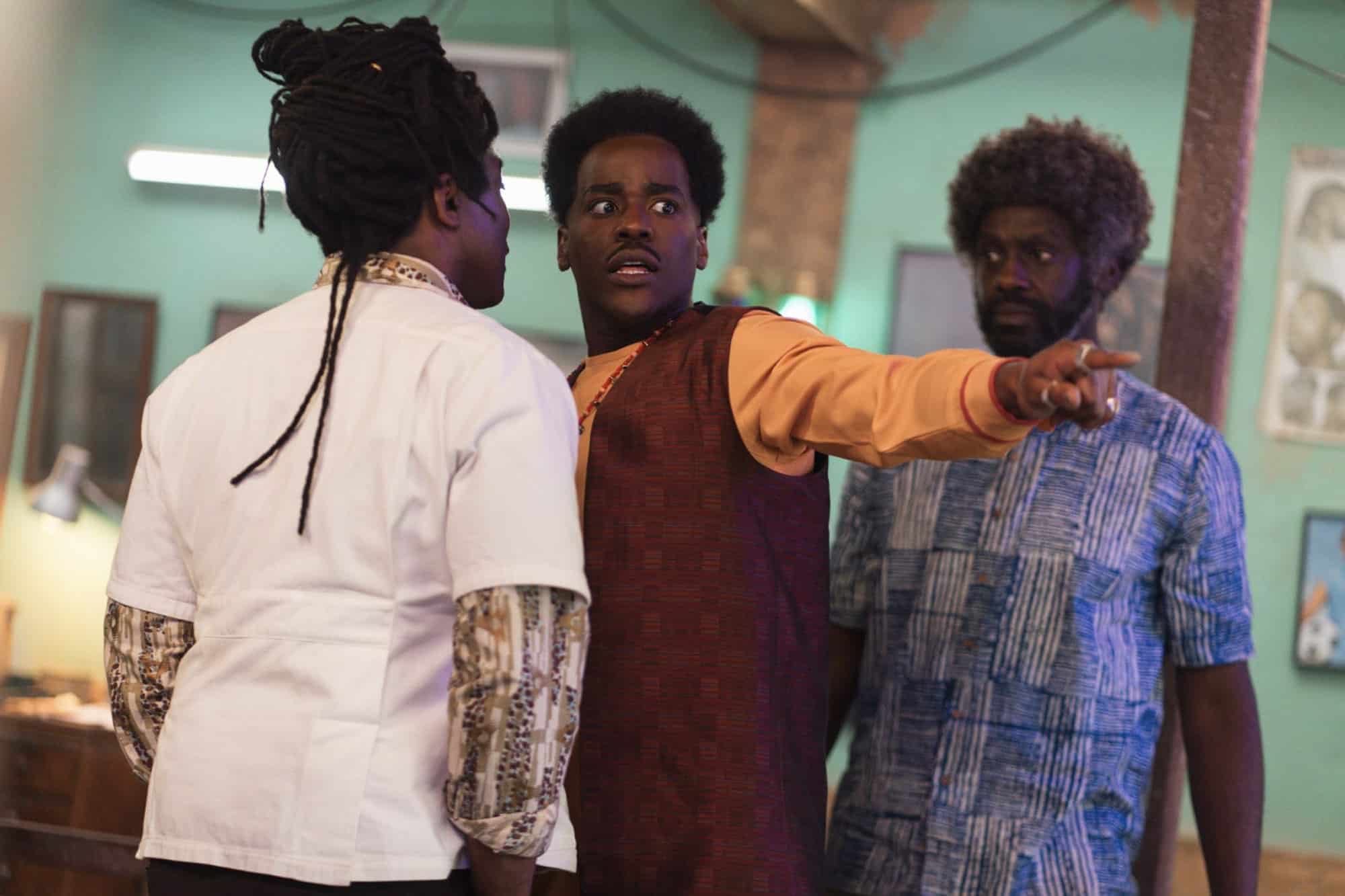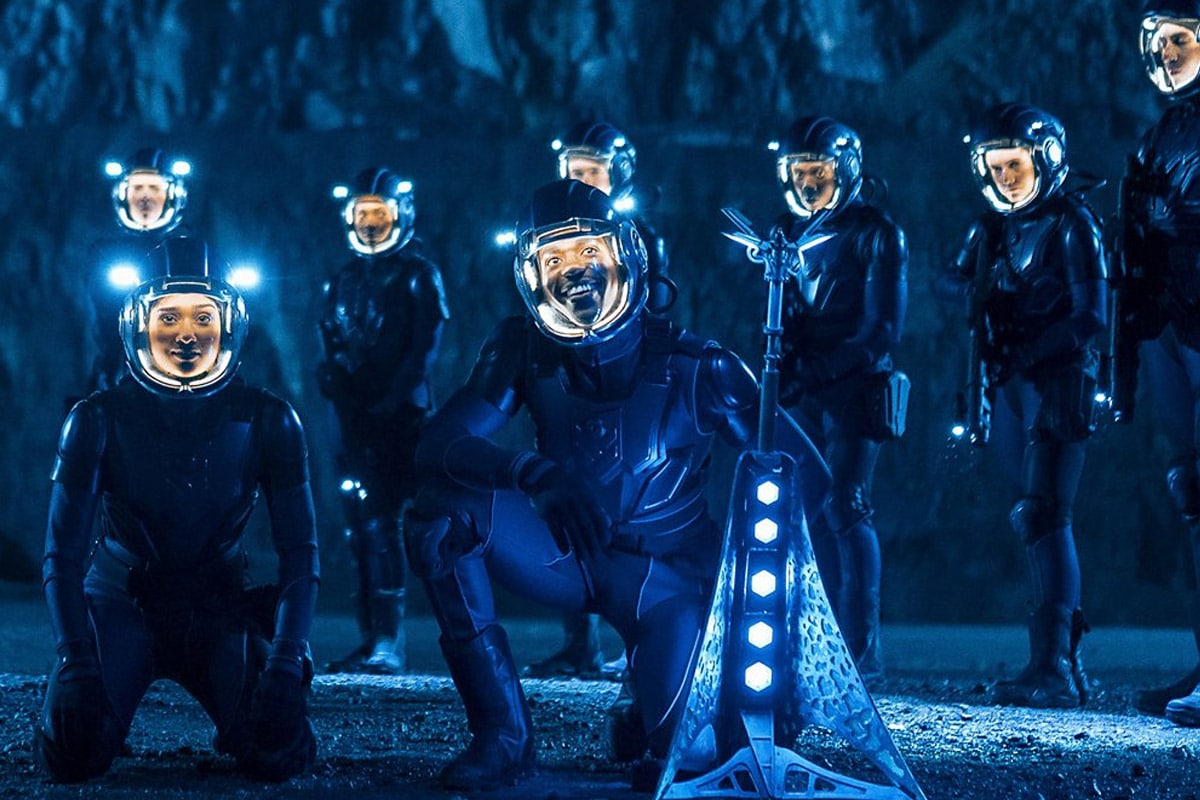
Doctor Who | Series 15 | Episode: 4| ‘Lucky Day’ | Duration: 46 minutes | Writer: Pete McTighe | Director: Peter Hoar | Starring: Ncuti Gatwa, Varada Sethu, Millie Gibson, Jonah Hauer-King
Conrad Clark is a successful podcaster desperate to uncover the mystery of the time-travelling Doctor and their TARDIS. When he tracks down one-time companion Ruby Sunday, his podcast gets a boost, and there’s an undeniable spark between the pair. Coping with life after the Doctor, Ruby finally sees a future on Earth as her relationship with Conrad blossoms. But it’s not long before the deadly Shreek, whose Earth jaunts link Ruby and Conrad, highlight a terrible plot with its root very much on Earth that threatens the very existence of UNIT and pushes Kate Lethbridge-Stuart to the limit.
“I don’t accept your reality, Doctor”
As Doctor Who’s fifteenth series continues to mirror its fourteenth, fans may know what to expect: a Doctor-lite, companion-led episode. They might not expect that the lead is a returning Ruby Sunday and that ‘Lucky Day’ is set on expanding this year’s exploration of control and reality.
After this season’s strong start, ‘Lucky Day’ is the first episode without a writing credit for showrunner Russell T. Davies. For the fourth episode, he hands over to franchise veteran (and for some, a hot prospect for the show’s future), Pete McTighe. As show-runner of the upcoming spin-off The War Between the Land and the Sea (keep your eye, like Mel, on Sydney Harbour), there’s scrutiny on how McTighe returns UNIT to the main series. That comes with nerves, too: given his previous scripts have been the satirical ‘Kerblam!’ and preachy ‘Praxeus’ during the Chris Chibnall era, can he meet this season’s high bar?
Fortunately, ‘Lucky Day’ is by far McTighe’s most successful Who script, furthering the season’s themes and handing fandom a compelling and very booable villain. A success, then, but not to the point that it overcomes every objection that it’s a bit of a fluff episode in an all-too-short eight-part season.
Like the concept or not, ‘73 Yards’ was the eye-catching episode of 2024. It successfully, if inexplicably, put companion Ruby Sunday under the spotlight and turned her timeline, friends and family upside down. A year later, despite leaving the TARDIS at the tail-end of Series 14, Ruby returns to front the episode.
It’s a jolt for the audience, having bought into the Doctor and new companion Belinda’s attempts to get back to Earth for three weeks. Despite the obligatory vindicator scene and the Doctor’s bookending appearance, it also feels like a step away from this year’s main narrative thrust… It’s a good thing, then, that it has much to say about the emerging confrontational themes.
Those themes are writ large as control (and narrative control) as Ruby’s happy new life on Earth turns out to be just as artificial as the radical Think Tank believes the Doctor and UNIT to be.
To do this, ‘Lucky Day’ establishes some comfortable Who conventions. At the halfway point of the series, this could be as close as fans get to a celebration of the New Series’ 20th anniversary. There’s an undeniable hint of the New Series’ first episode ‘Rose’ in ‘Lucky Day’… The New Year start, showcasing the London Eye, the department store interlude, and the unreliable boyfriend. Setting it in 2007 makes it just satisfyingly off-kilter, building to its central chilling twist.
‘Lucky Day’ is effective at showing that the world the Doctor operates in has moved on. S with ‘73 Yards’ small details mean a lot. Confirming ‘The Giggle’, American newsreader Trinity Wells, first seen 20 years ago reporting the ‘Aliens of London’ encounter on American network AMNN, now fronts a sensationalist self-titled programme.
Gibson effortlessly sinks back into the character of Ruby Sunday, but as Conrad, Jonah Hauer-King is a massive part of this episode’s success. A recognisable name and bona fide Prince Charming (The Little Mermaid), he’s a brilliant addition in a role that needs to sell love and hate. No point beating around the bush; it’s no surprise that Conrad turns out to be something he isn’t, or that his downfall is well-signposted, but it’s a compelling watch. Especially as Jonah reveals an implacable menace with chilling elan.
It’s worth a rewatch to catch the details of his performance and subtle hints – the stalkeresque introduction, awkward charm, and a deflecting smile with a steely stare behind. It’s not a comfortable watch, especially for fans of Ruby (who goes through the wringer more than some companions). Ruby hands Conrad the ammo, and over time, sets herself up for a savage fall. In a way, it’s an inverse of ‘73 Yards’ – while that put the focus on Ruby, while ‘Lucky Day’ dismisses her. It’s brutal. It’s disturbing.
The extension of the season’s themes is clear as any day, let alone a ‘Lucky Day’. Conrad is a chilling, lying, manipulative, and controlling villain. Unfazed by the evidence in front of him, there’s the suggestion that he’s deliberate, weaponised cynicism.
He’s impassive, even more empowered when he finally confronts the Doctor. The Time Lord’s speech may have its preachy moments, but it’s one of Gatwa’s finest hours of steely, barely controlled fury, and establishes two key things. One, he’s utterly irredeemable. Second, the Doctor is provoked enough to use his knowledge of time to diminish his opponent, setting out Conrad’s fate and when he’ll suffer a miserable, lonely death.
Conrad’s response recalls the Fourth Doctor lines when trapped in the false reality of the Time Lord Matrix in ‘The Deadly Assassin’–perhaps summarising the season and setting out a stall for the finale: he denies the Doctor’s reality. In the next scene, the customary appearance of Mrs Flood suggests she will (has the power to) break Conrad’s future–to change his fiction. Hopefully, there isn’t a mystical elevation in store for the villain (although we can undoubtedly count on his return).
Conrad is the episode’s rock of menace and a further example of a controlling male in this series. Alan, the AI threat seeking union with Belinda in The Robot Revolution, was a sneering caricature that crawled so Conrad could stand impassively in the TARDIS. He also sits in the dual lineage of Doctor companions. While he’s equable with a nefarious type like Adam Mitchell from ‘Dalek’, he’s also an alternative version of Amy Pond, where that first early meeting with the Doctor is quite the opposite of inspirational. To get even more meta, it’s also a study on the tonal shifts of the Whoniverse over the years, as well as fan response to it.
Conrad’s plot also provides the chance to break open the show, following the meta step into fandom in Lux, with ‘monsters’ exposed as ‘stooges’ and ‘special effects’.
Watching Conrad deny reality, any reality, is powerful. Come the end, it’s a hollow place where the Doctor has declared war and, as unseen forces move against him, it seems Mrs Flood has her champion.
Lucky Day: The Verdict
‘Lucky Day’ is another exploration of what it is to be Doctor Who the series, and continues this year’s theme of deconstructing its narrative elements. On the way, there’s a broken companion, a misguided UNIT, a furious Doctor and an uncomfortably good villain.
It fits in the season, but the jolt of Ruby’s return (despite setting out the impressive net of Who), and the nagging suggestion this tells us more about where the 2025 spin-off will go than the end of this season, means it’s so far the weakest episode so far of an admittedly strong series.








0 Comments